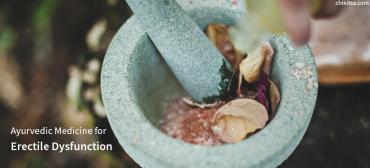Know When To Eat Fruits According To Ayurveda

Shifting from an artificial or processed eating style to a whole environmentally friendly and natural food helps us in feeling better and stronger. So, it is very much healthy to shift to whole raw vegetable food. Now that you have decided to include fruits and veggies into your diet, let's talk about When to eat fruits according to Ayurveda, and what is the best time to eat fruits according to Ayurveda? Well, the answer to this question is with an empty stomach that is early in the morning just after a glass of water and if taken before meals then prefer to have it at least an hour before. It is usually preferred that fruits should be eaten an hour before the meals or a couple of hours after the meals. Fruits can be consumed by mixing with yogurt or salt if you've no other digestive problems. Some fruits like oranges, melons, pineapple, pomegranate, etc. can be taken with salads.
The Best Time To Eat Fruits According To Ayurveda
As per Ayurveda, there are rules that need to be followed to achieve a balanced diet. These Ayurveda hours of eating relate to the natural processes like the ripening of fruits, veggies, and seeds and the impact of the solar and lunar energy in them, on our mood. The best time to eat fruits according to ayurveda is in the morning and is highly to be avoided in the evening. All types of fruits except citrus ones can be consumed for breakfast.
Look at the timings here to get a better idea of when to eat different types of food according to Ayurveda;
- Citrus fruits like mandarin, grapes, lemon, pomegranate can be taken between 10 AM and 3 PM.
- Watermelon between 11 AM and 5 PM.
- Melon between 9 AM and 4 PM.
- All different berries like cherries, blueberries, grapes, raspberries, except strawberries are suggested to be consumed in the morning and to be avoided in the evening, except grapes.
- Strawberries can be eaten between 10 AM to 4 PM.
- Dry fruits like raisins, apricots, figs, prunes, and dates are highly recommended for breakfast and during the cold season and can also be consumed with nuts and seeds but to be avoided with fresh fruits.
[Also Read: Ayurveda diet according to doshas]
Reason To Eat Fruits And Veggies Separately
Ayurveda studies believe that the main reason for any kind of health concern starts from the stomach. So, our health and strength depend on factors like what food we eat, when do we eat, and our body's ability in digesting food. Usually, fruits and vegetables are light, cold, dry, and rough, i.e., they are rajasic and excessive intake of all these types of foods impacts the digestive system's ability thus leading to lowered absorption of nutrients and that is the reason it is always suggested not only by Ayurveda but others too, to have a balanced diet.
Fruits taken individually digests fast compared to other food items that Ayurveda suggests to not have them with any other type of foods as it slows the digestion of the fruits to that of the other substance consumed alongside leading to a negative effect on the body as disturbing the nutrient absorption cycle and waste disposal cycle called Ama, which stands out a condition or chance of developing a disease.
Following the Ayurveda eating rules will reap the best benefits and here are a few listed for your reference;
- The secret of maximum results from fruits- The best output can be witnessed by taking the fruits at the perfect time and in a perfect manner.
- Avoid mixing less sweet fruits like berries, bananas, etc., with milk.
- Never ever eat fruits post meals at any time of the day.
- It's a big no to eating fruits and vegetables together as they both digest at a different pace because they are mostly eaten cooked, unlike the fruits.
- Consuming packed juices is not suggested as they contain artificial preservatives and sweeteners.
- Juices should be consumed just in a few minutes post-extraction to enjoy the natural sweetness and get their full nourishment.
- Mornings would be the best time to consume fruits like bananas, peaches, pears, and especially apples.
- Eating fruits before meals have their own benefit of controlled eating.
- Importantly, never skip your breakfast.
Eating once a day Ayurveda is also known as OMAD which stands for One Meal A Day is followed by many either to gain weight or maintain the weight or lose fat. It is also said that this eating once a day process or OMAD has its benefits like Anti-aging, Metabolism-boosting, easier meal planning, weight control, etc. But be cautious as this method of eating won't suit, everyone. It is best to start an OMAD under an expert's supervision.
Different Ayurveda Suggested Fruits
With all that understood, it is equally important and necessary to know different Ayurvedic suggested fruits;
1. Mango
Mango is also known as the king of fruits, adding it to your diet benefits in balancing Vata, and Pitta.
2. Pomegranate
If you are suffering from any digestive problems then try to add pomegranate to your diet where it is good for digestion and particularly aids pitta.
3. Apple
Apple as always and in many ways has its own benefits and is good for Kapha. whereas, for Vata and Pitta, raw and sour apples help.
4. Pear
Pears is a good energy booster and hormone balancer.
5. Watermelon
Summers need them the most to cool off and help in balancing pitta.
6. Grapes
Grapes are the best fruits as per Ayurveda.
7. Indian Gooseberry
Indian gooseberry is also known as amla and this rasayana helps to balance all 3 doshas and is a divine food that improves health and is long-living.
8. Bananas
Bananas are a sour Ayurvedic fruit and is never to be consumed with milk.
Now that with a good understanding of when to eat fruits according to Ayurveda or what is the best time to eat fruits, what fruits benefit, what are the different times to eat as per Ayurveda, and various rules of Ayurveda, it is clear that following the consumption of a well-balanced fruit can be healthy to anyone.











